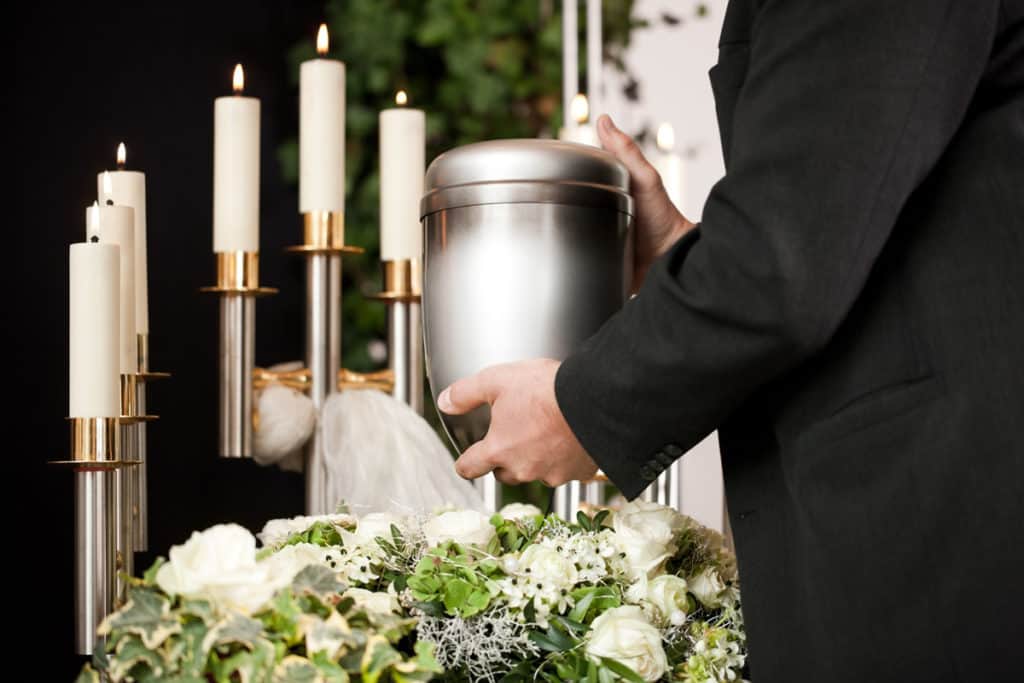What to consider when arranging a funeral or cremation in West Virginia
Making arrangements for a funeral or cremation is not always an easy task. There are countless decisions to be made, and this can seem overwhelming, especially if little preplanning was undertaken. This guide has been designed to assist you through the process of arranging a funeral with particular reference to state funeral laws that affect funeral-planning in West Virginia.
Choosing a funeral home in West Virginia
One of the first things you will need to do, especially if a death has just occurred, is to select a funeral home. There are in the region of 300 funeral homes and mortuaries in West Virginia so you need to consider what criteria can help you select the right funeral home for your needs. Deciding whether you need burial or cremation, what budget you have, and what kind of memorial services (if any) you require, can all help you define a better idea of what funeral services provider can best serve your needs.
Many people seek recommendations or referrals from family or friends, and this is a very good way to get information. However, if you are not in a position to benefit from a sound referral, or you are seeking something specific, you may have to resort to contacting funeral homes yourself. Usually, people look for a reputable funeral business in their own area, but it is always advisable to check with more than one funeral home and compare services and prices for a funeral or cremation.
What does an average funeral cost in West Virginia?
The average cost of a funeral in the U.S. is $7,848 (according to the NFDA – National Association of Funeral Directors 2021), but this does not include any cemetery fees. The cost for a traditional burial is largely dependent on the type of casket you select and the final cost of your cemetery plot and a grave marker. Basic funeral director’s services for an economical traditional burial can be found for around $4,995 in West Virginia.
All funeral homes in the West Virginia area must have a general price list (GPL) that outlines their service charges and funeral merchandise prices. They must provide a copy of their GPL when they quote you a price according to the Federal Trade Commission’s ‘The Funeral Rule’.
How much does a cremation cost in West Virginia?
A typical cremation funeral service will cost in the region of $3,900 (depending upon the ancillary services/products you select). This is the type of cremation service that replaces a full traditional funeral; however, it is possible to arrange a cremation for considerably less than this.

Arranging a direct cremation in West Virginia
A direct cremation is the least expensive cremation option for families. Direct cremation means that there are no services, the cremation goes ahead once all the documentation has been completed, and then the cremated remains are returned to the family in a temporary container. Incremental options, such as a private family viewing or an upgraded cremation urn, can be added to a basic direct cremation package for an additional fee.
If you are concerned about funeral costs, the DFS Memorials providers in West Virginia offer low-cost cremation services and affordable burial services. All DFS Memorials providers guarantee to offer a ‘best value’ direct cremation package.
How do I decide between a burial or a cremation?
The decision between choosing a burial or cremation is very much a personal choice. The deceased may have left explicit wishes or surviving family may have to make a decision. Faith and/or funds for the funeral service can play a significant role in whether a burial or cremation is chosen. Having a pre-existing cemetery plot can be an important aspect as burial plots can be quite expensive to purchase these days. Cremation is certainly on the increase in the United States and is becoming a popular funeral alternative for many now. Green burials are also another option that can be considered.
If you are unsure whether to choose between burial or cremation, talk to family and friends, and discuss the decision with your funeral director. Just be aware that a funeral director is running a business.
Laws governing cremation in West Virginia
There are laws that govern the process of cremation to ensure it is conducted safely and in line with proper, respectful procedures. A body can only be cremated if the legal next of kin has signed a ‘Cremation Authorization Form’. This form can be signed and self-authorized if you are preplanning a cremation. There is a mandatory legal waiting period in many states but in West Virginia, a cremation can proceed once the cremation permit has been obtained from the Chief Medical Examiner.
The cremated remains should be returned to the family within 35 days of the crematory receiving the remains (unless specified differently in a funeral contract).
Does the deceased have to be embalmed?
There is no legal requirement, or WV state law, stipulating that you have to have the deceased embalmed. However, some funeral homes may adopt policies that insist upon embalming if a public viewing or service is being held with the deceased in repose. If you proceed with a timely funeral, there is really no need for embalming (and it can just be another fee to add to your funeral costs!)
Conducting a Memorial Service
Many families are choosing to conduct their own memorial services these days, especially with the increase in direct cremation and the quick and efficient means of dealing with the immediate disposition of the body. A family can not only save money by arranging and conducting their own memorial service, but it can also prove to be a much more personalized service. A memorial service typically proceeds without the deceased’s body present, although sometimes the cremation urn can be present. Life celebration style memorial services are gaining popularity today and can be hosted at all kind of venues rather than at a funeral home or chapel.
What can you do with the cremated remains in West Virginia?
There is no state law that determines where you can keep or scatter cremated remains in West Virginia. Generally, ashes are stored in a cremation urn, which can be kept at home or interred in an existing grave plot or a niche. If you choose to scatter the cremated remains, you can disperse them in a designated scattering garden or on private or public land. You will need the permission of the land-owner to scatter on private land, and you should check if there are any zoning restrictions for any public area you wish to scatter on.
Cremated remains are non-toxic, organic matter and therefore pose no threat to the environment. Just ensure you adopt safe dispersal techniques as outlined in our Ash Scattering Guide.
Purchasing a casket or grave marker in West Virginia
You can save on your overall funeral costs by purchasing funeral merchandise from elsewhere than your funeral home. You can purchase a casket or a grave marker from a third-party seller and your funeral home must accept it, and cannot charge you a handling fee (FTC rule). We have comprehensive guides to buying a casket or grave marker, so I would recommend you visit these sections for more detailed information.

Can I pre-plan a funeral in West Virginia?
Yes, you certainly can, and this is becoming a preferred choice for many families in West Virginia now. Pre-planning your funeral alleviates the family of both the difficult decisions and the financial burden of funeral expenses. You can make pre-need funeral arrangements direct with a funeral home or purchase burial insurance.
What you DO need to consider is that funeral prices could indeed be coming down. Funeral companies promote preplanning on the basis that it “locks into today’s prices”, but with the cremation trend increasing, and more funeral homes competing for the ‘affordable’ funeral market – the reality is that the funeral costs are not as ‘fixed’ as they once were.
Another funeral planning alternative is to document your wishes and put aside the appropriate funds in a POD Payable on Death account or a Totten Trust. This enables the family to access the funds at the time of need and make the funeral arrangements, but you keep in control of your monies and any accrued interest. Read more in our article ‘What is my best and safest option for putting aside money for a funeral’.
Can I donate my body to science in West Virginia?
Yes, donating your body to science can be a great way to facilitate your end-of-life needs and, apart from being a gift to society, can also mean that you do not have any funeral expenses. Most of the national organizations that deal with full-body donation handle everything from the moment you notify them of the death, including collecting the body, the donation, the free cremation, and the return of the cremated remains to the family a few weeks later. Many more people in West Virginia are choosing body donation now, and once they have had the cremated remains returned to them at no-cost, they then arrange their own memorial service for the family. Check out our Body Donation section.
How can I transport a loved one either back to, or from, West Virginia after death?
If a loved one needs to be transported back to a state or country of origin following their death in West Virginia, you will need the services of a funeral director who can arrange funeral shipping for you. This generally needs a funeral professional who can coordinate arrangements at the place of death and wherever the body is being shipped to.
If transporting a loved one between states in the United States you have the option of flying the body or transporting the body by land. Certain regulations do apply to moving a body, and it is likely that embalming will be required as well as specific containers to hold the casket. Shipping a body can be quite expensive, so the other alternative you have is to have the body cremated at the place of death, and then transport back the cremated remains. Visit our section on Funeral Shipping to read more.
If you do travel regularly for work, pleasure, sport, visiting family, or snow-birding, you may wish to consider our great value Travel Protection Plan. This plan costs just $450 for an individual for lifetime protection against the costly expense of returning a body home if a death occurs 75 miles (or further) from your residence. It also provides global coverage. Domestic funeral shipping can cost from $3,000, and International repatriation can start at around $6,900.
How to get a death certificate in West Virginia
In West Virginia a death certificate must be filed within 5 days of the death and before the final disposition of the body takes place (West Virginia Code § 16-5-19). The funeral director will generally arrange this for you. If you need additional certified copies of the death certificate these can be obtained from the West Virginia Health Statistics Center. Each certified copy costs $12.00 and can be obtained in person, by mail, online, or by phone.
Who should I contact if I have a complaint about a funeral home in West Virginia?
Hopefully, you will find the services of your funeral home more than adequate, as most funeral professionals are very dedicated in their vocation. Unfortunately, though, it does sometimes happen that you may have a complaint or grievance with a funeral home and you do not manage to resolve it directly with the funeral director. In this case, you should make your complaint in writing to the West Virginia’s Board of Funeral Service Examiners who regulates and licenses funeral businesses: 179 Summers Street, Suite 305, Charleston, West Virginia, 25301 Phone: (304) 558-0302
I hope this guide has helped to answer some of your immediate questions. Please check out our Library/info section for our full catalogue of resources to help you through the process of arranging a funeral. Feel free to contact us if we can be of any assistance with any further questions you may have.
Resources:


